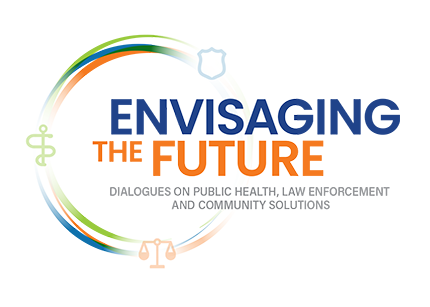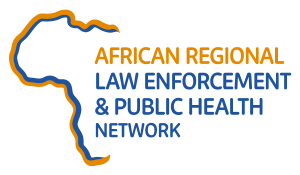
Police response to gender-based violence among women who use drugs: practices and possibilities
On-line webinar
Date: 16th of December 2021
10.00-13.30 (Kyiv time)
https://us02web.zoom.us/j/89290938681
Description
According to the World Health Organization (WHO), one-in-three women experiences intimate partner violence1. Women who use drugs are three-to-five times more likely to experience gender based violence than women in general2.
Women who use drugs and/or are involved in drug trafficking face multiple, mainly gender-based, stigmas and discrimination in society. They tend to have lower social and economic status within the community of people who use drugs which means that they face multiple health risks and barriers when trying to access services intended for survivors of gender-based violence.
Such barriers may include punitive and discriminatory practices by police and health care professionals; increased stigma associated with negative attitudes in society towards women who use drugs; harm reduction services and drug treatment programmes that do not meet the needs of women; lack of sexual and reproductive health services for people who use drugs; and limited access to harm reduction programmes3, 4.
Criminalisation of drug use often means that when faced with gender-based violence, women who use drugs suffer structural abuse at the hands of police officers, health and social services, instead of being given protection. Instead of providing security and support services police may charge a woman with drug use and trafficking and also inform social services which may lead to loss of parental rights.
1 Violence against women. Strengthening the health response in times of crisis. Geneva; World Health Organization, 23 November 2018. https://www.who.int/en/news-room/feature-stories/detail/violence-against-women
2 El-Bassel N, Gilbert L, Witte S, Wu E, Chang M. Intimate Partner Violence and HIV Among Drug-Involved Women: Contexts Linking These Two Epidemics—Challenges and Implications for Prevention and Treatment. Substance Use & Misuse, Vol. 46, Issue 2-3, 2011, pp295-306. https://doi.org/10.3109/10826084.2011.523296
3 El-Bassel, Op.cit.
4 Pinkham S, Malinowska-Sempruch K. Women, Harm Reduction, and HIV. New York; International Harm Reduction Development Program, Open Society Institute, 2007.
https://www.opensocietyfoundations.org/uploads/c47ab575-6642-423c-8f40-
dd33f16b5271/women_20070920.pdf
The aim of the on-line webinar event is to build capacity and knowledge about effective police approaches in provision of help and protection to women using drugs in case of domestic and intimate partner violence. During the webinar there will be an opportunity to learn about internationally recommended approaches and best practices of police response focused on ensuring security and referral to health, social care services and shelters for women5.
The workshop is organized in the framework of the project “Access to comprehensive care for women who use drugs in case of violence”, part of the regional project “Sustainability of Services for Key Populations in Eastern Europe and Central Asia” which is lead by the Alliance for Public Health, in a consortium with the 100% Life (All-Ukrainian Network of PLWH), the Central Asian HIV’ Association and the Eurasian Key Populations Health Network with the aid from the Global Fund to Fight AIDS, Tuberculosis and Malaria in the C19RM framework.
The webinar is organized with support of UNODC regional team.
Language: English-Russian (with simultaneous translation)
Duration: 3 hours
Countries: Central, Eastern Europe and Central Asia
Participants
- Police officers and police station employees.
- Police academy professors and students
- Representatives of Ministry of interior responsible for police response on gender-based violence.
Meeting Agenda
10.00 Introduction to the issue. Zhannat Kosmukhamedova, UNODC
10.10 Presentation of the UNFPA Standard Operating Procedures6for police in response to gender-based violence. Ms. Ionela Horga, East European Institute for Reproductive Health in Romania
10.25 A brief overview of challenges faced by women who use drugs in EECA countries, Masha Plotko EHRA
- 40 Community of women using drugs presenting specific cases to analyse the police responce on violence. Alla Bessonova, Natalia Karagashova, Elena Bilokon from community organisations.
5 Help impossible to ignore. Guide and materials, 2021 https://harmreductioneurasia.org/wp content/uploads/2021/05/Help-Impossible-to-Ignore_ENG.pdf
6 https://eeca.unfpa.org/en/publications/police-services-provision-standard-operating-procedures
11.00 Presentation of international experiense in provision of help to women using drugs in case of gender based violance in European countries. Peter Muyshondt, Chief of police of the local police area Rupel, Belgium
Discussion and questions
12.00 Presentation of Ukrainian algorithm of police actions to help to women using drugs in case of gender based violance. Olena Dashutina, Head of the Department for Monitoring Gender Equality and Combatting Domestic Violence Coordination at the Respecting Human Rights Office of the National Police of Ukraine
Discussion and questions
12.50 Closing the webinar
Facilitator: Ganna Dovbakh, EHRA






